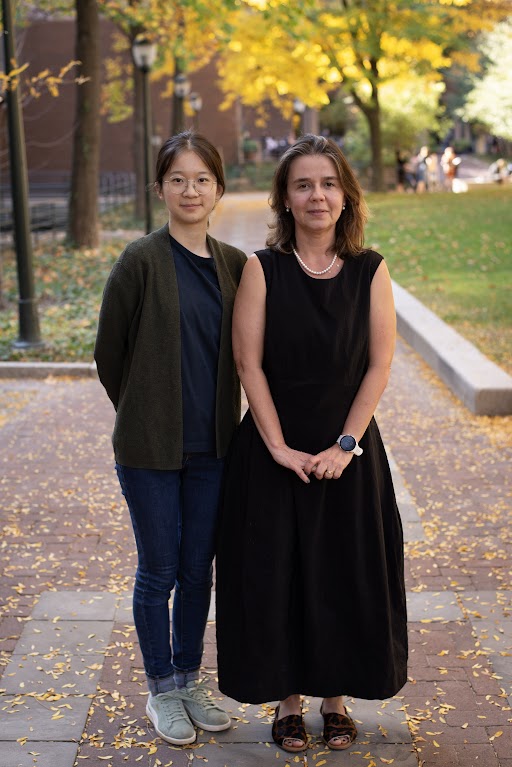Student Partners in Decoding Zika, Covid, & Women's Reproductive Health
PSC & PARC Research Associate and Penn Presidential Compact Professor of Sociology Letícia Marteleto is welcoming undergraduates learn and work alongside her. As Research Assistants for DZC (Decoding Zika and COVID), students become partners in a project that seeks to uncover the short- and long-term effects of novel infectious disease crises on multiple aspects of women's reproductive health and fertility.
health and fertility.
One of these partners is Penn undergraduate Sociology Major Yuting Zhu. Under Dr. Marteleto's mentorship, Yuting conducted a literature review of how infectious disease epidemics and pandemics, such as Zika, COVID-19, and HIV, affect women's fertility intentions, decisions, and fertility rates around the world. Using data from Dr. Marteleto's work with Brazilian women, she's investigated SES and racial differences in women's fertility intentions pre- and post- COVID-19. You can read more about her research here.
 While working with Dr. Marteleto, Yuting gained a unique scholarship experience. Over the course of a semester, she was introduced to the full scope of the project and immersed in real-world activities. Yuting was able to participate in data analysis meetings, accompany the development of survey tools and actively engage in research activities, from literature reviews to data findings. She also trained in Social Behavioral Good Practices, assisted with the documentation of a large survey data collection, and gained firsthand knowledge about NIH grant processes.
While working with Dr. Marteleto, Yuting gained a unique scholarship experience. Over the course of a semester, she was introduced to the full scope of the project and immersed in real-world activities. Yuting was able to participate in data analysis meetings, accompany the development of survey tools and actively engage in research activities, from literature reviews to data findings. She also trained in Social Behavioral Good Practices, assisted with the documentation of a large survey data collection, and gained firsthand knowledge about NIH grant processes.
Yuting shares how firsthand experience in her major has enhanced her undergraduate experience:
"This internship deepened my understanding of mixed-method sociological study methods, which is my major concentration and I enjoyed this wonderful learning experience. In this internship I could also contribute to draft writing by synthesizing literature research to support the motivation of upcoming research papers, and to pick up quantitative experience in research."
Dr. Marteleto is excited about working with undergraduate student research assistants, and emphasized how beneficial the partnership is for both faculty and student.
"This is a large project, with many moving parts, from interviewers and fieldwork supervisors to project managers and data analysts. To be able to expose undergraduate students to the entire process is pretty amazing. Students benefit from learning the entire process of conducting research, from conceptualization of research questions and hypotheses to data collection and analysis. Those who have never collected longitudinal data, particularly internationally, often underestimate the amount of work involved. It’s neat to see students learning what it takes to have high-quality data in their hands to test hypothesis and produce solid empirical evidence."
"At the same time, students bring their own unique interests and perspectives to the project, and this can translate into analysis that wouldn’t otherwise happen or that the mentor hasn’t had a chance to look at yet. They can take one aspect that isn’t necessarily central to the original project and expand it given their interests. For example, Yuting started out with learning from multiple epidemics in many countries around the world. She then learned how to translate this broad interest into research questions that she could use data from the project to answer. Both sides benefit from the reciprocal nature of the mentor/mentee relationship. It’s a win-win!"
Yuting's internship was made possible by The E. Digby Baltzell Endowment, a fund honoring Penn Sociologist E. Digby Baltzell to support undergraduate and graduate research and activities. In the two years since the program's inception, nearly 20 Baltzell Scholars have been paid to contribute to the faculty research, and more are scheduled to do so in the upcoming months.